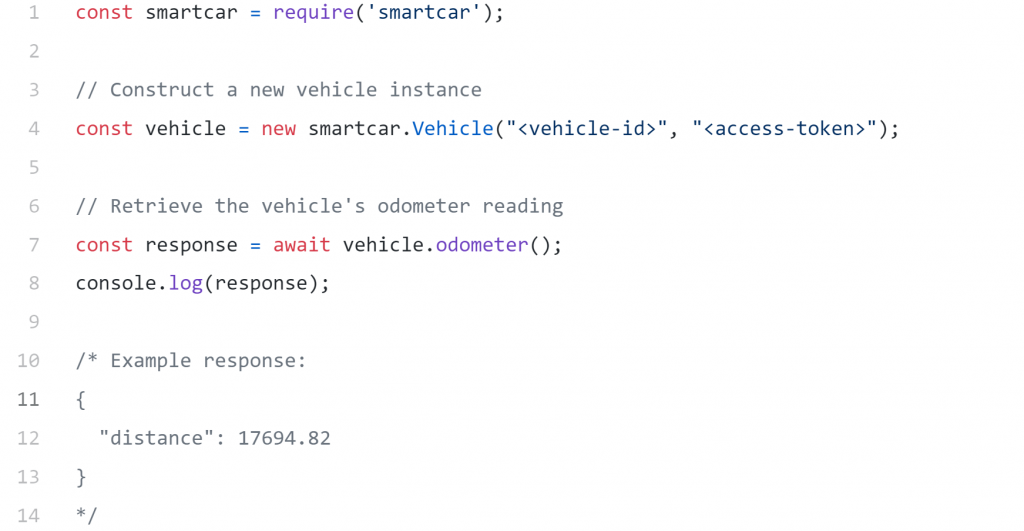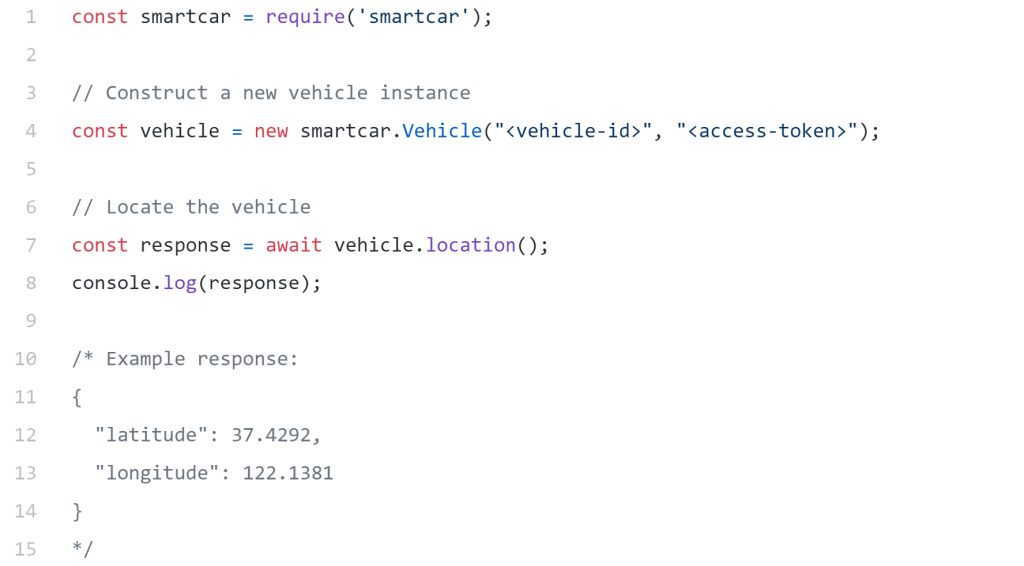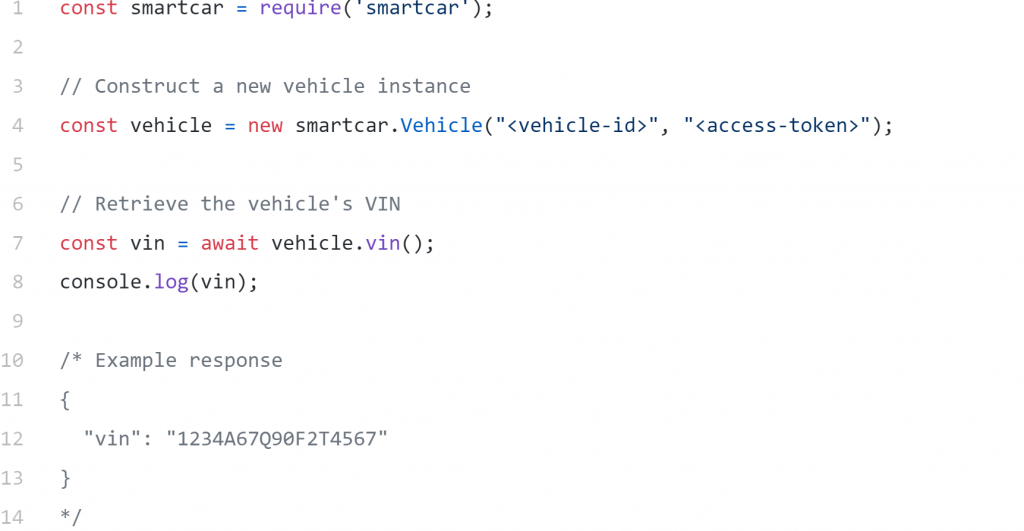Pricing auto insurance premiums with the Smartcar API
Inaccurately priced premiums cause personal auto insurance providers millions of dollars in losses every year. The tasks involved with correctly categorizing risk and accurately pricing insurance policies are complex. However, there are a few factors that contribute to inaccurate pricing for many insurers and that can easily be verified. Today, we will explore three of these factors and outlines how insurers can accurately verify them using the Smartcar API.
Verifying insurance pricing factors with Smartcar
1. A driver’s mileage
Although California is the only U.S. state in which a driver’s mileage is one of the most influential rating factors, mileage is a good indicator of the number of at-fault claims a driver will file. Insurers are reluctant to include mileage as a rating factor because it is difficult to verify. As a result, underreported mileage causes insurance providers to lose on average 2.6% per insurance policy.
Smartcar allows insurers to avoid these losses. Our API enables insurance applications to easily connect to their policyholders’ vehicles and to verify their monthly mileage:

- The policyholder connects their vehicle with a few clicks from the insurer’s web portal or mobile app. Before consenting to share their vehicle’s information, all policyholders review an exact list of what the insurer is requesting access to (e.g. read odometer, read location, and read VIN).
- The insurer’s application can now read the vehicle’s odometer with a simple API request:

2. A vehicle’s garaging location
The location at which a vehicle owner’s car is regularly parked might not be one of the first things that come to mind when thinking about insurance rating factors. However, a different ZIP code can easily cause a driver’s insurance premium to decrease by 50% or more. As insurers rarely verify a vehicle’s actual garaging location, more than 10% of insurance policies end up having verifiable garaging defects. For example, policyholders might forget to update their garaging address after moving. Students often still list their parents’ home address instead of their college campus address. Some policyholders even lie about their garaging location to get a better rate. As a result, insurers lose an average of 1.4% in premium leakage per insurance policy.
To avoid this premium leakage and to prevent fraud, insurers can easily verify each policyholder’s garaging location:
- The policyholder connects their vehicle as shown above.
- The insurance application can now periodically verify the vehicle’s location and detect when the vehicle’s actual garaging location differs from the address that the vehicle owner provided on their policy:

3. A vehicle’s VIN
Similarly to mileage and garaging locations, incorrectly reported VINs cause insurers millions of dollars in annual losses. More than 5% of policyholders report an incorrect VIN to their insurer. Many insurers don’t verify the provided information. Hence, insurers lose on average 1% on each insurance policy.
Smartcar allows insurers to quickly and easily retrieve the actual VIN from a policyholder’s vehicle and compare it with the VIN they previously reported:
- The policyholder connects their vehicle as shown above.
- The insurance application can now verify the vehicle’s VIN:

The benefits of using Smartcar
By verifying their policyholders’ mileage, garaging locations, and VINs, insurers can avoid losing 5% on each and every insurance policy. But Smartcar also has additional benefits that other insurance telematics solutions might not provide:
- Accurate: Smartcar allows insurance providers to connect with each specific vehicle and to read the request information directly from the instrument cluster.
- Hardware-free: Unlike other telematics solutions, the Smartcar API doesn’t require any aftermarket hardware like OBD-II dongles. This makes our solution cost-efficient and easy to use.
- Developer-friendly: Our extensive documentation and SDKs allow your engineering team to integrate Smartcar from start to finish in just a few weeks.
- Simple user onboarding: Our Smartcar Connect flow allows vehicle owners to connect their cars to your app with just three clicks from their phone or laptop.
- Privacy first: Before consenting to share their vehicle information, your customers have the chance to review exactly which information your application will be able to retrieve. Your customers will thank you for this transparency by developing trust in your organization and becoming loyal customers.
This is why verifying a policyholder’s mileage, garaging location, and VIN is crucial to achieving accurate pricing and how insurers can do so using the Smartcar API.
Visit Smartcar to explore our APIs for auto insurance.

